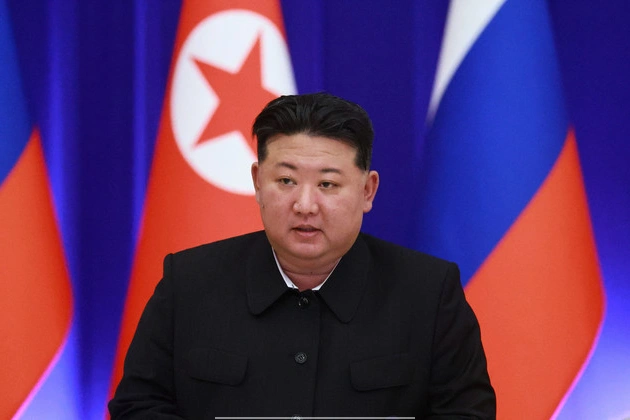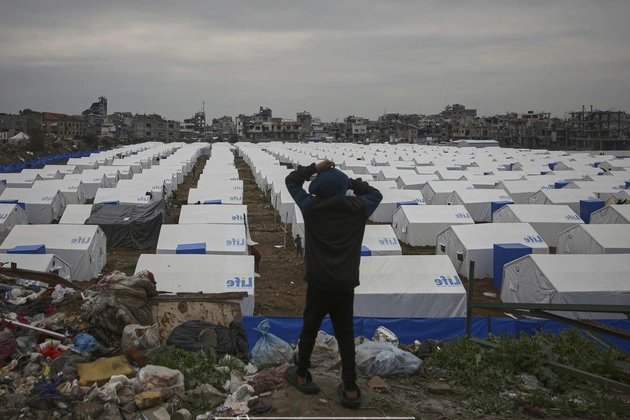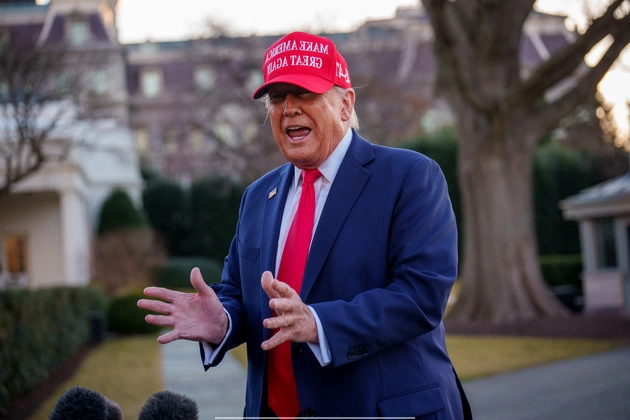
North Korean leader Kim Jong Un has once again voiced his opposition to the heightened security alliance between the United States, South Korea, and Japan, citing it as a significant threat to his country’s safety. In a recent speech commemorating the 77th anniversary of the Korean People’s Army, Kim emphasized the destabilizing impact of the trilateral security arrangement on the Korean Peninsula.
Kim’s remarks underscored his commitment to enhancing North Korea’s nuclear capabilities in response to perceived external threats. He outlined plans to fortify the country’s deterrence measures, particularly in the realm of nuclear forces, signaling a steadfast resolve to bolster their defense capabilities.
The strained diplomatic relations between North Korea, the US, and South Korea have led to a proliferation of military exercises and drills in the region, further escalating tensions. While President Donald Trump has expressed willingness to engage with Kim in the past, recent developments indicate a reluctance on Kim’s part to embrace diplomatic overtures.
Despite the previous summits between Trump and Kim in 2018-19, aimed at resolving North Korea’s nuclear ambitions, the negotiations reached an impasse over differing terms for denuclearization. Kim’s recent focus on supporting Russia in the conflict with Ukraine has diverted attention from potential diplomatic engagements with the US.
In his latest address, Kim reiterated North Korea’s solidarity with Russia and condemned US involvement in the Ukrainian crisis. The evolving geopolitical landscape raises concerns about the future of denuclearization efforts and the stability of the region.
The international community, including Japan and the US, remains committed to achieving complete denuclearization in North Korea, as reiterated in joint statements. The intricate dynamics of regional security alliances and power struggles continue to shape diplomatic interactions in East Asia.















